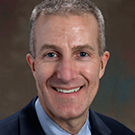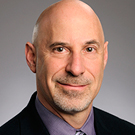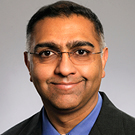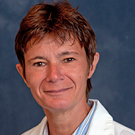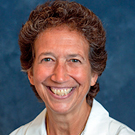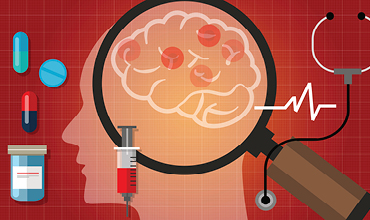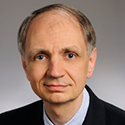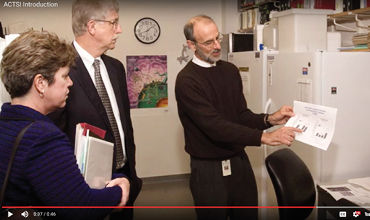If this message displays incorrectly, please view the web page

| NOVEMBER 2016 | |||||||||
Notable
Daniel Barrow (neurosurgery) was named president-elect of the American Academy of Neurological Surgeons. Daniel Brat (pathology) received the College of American Pathologists Lifetime Achievement Award.
Susie Buchter (pediatrics) received the Accreditation Council for Graduate Medical Education's Parker J. Palmer Courage to Teach award.
Richard Duszak (radiology and imaging sciences) received the Coulter Award. He also was appointed to the Executive Committee of the Radiology Alliance for Health Services Research. Helen Hughes Evans (pediatrics) was named a Marcus Professor in General Pediatrics.
Christopher Flowers (hematology and medical oncology) was named co-director of the American Society of Hematology's Clinical Research Training Institute.
Robert Gross (neurosurgery) was named VP of the American Society for Stereotactic and Functional Neurosurgery. Sookyong Koh (pediatrics) was named a Marcus Professor of Neurology. Kevin Maher (pediatrics) was invited to the White House as president-elect of the American Heart Association Regional Board of Directors. Terri McFadden (pediatrics) received the Gretchen Hunsberger Medical Champion Achievement Award. Carolyn Meltzer (radiology) was honored by the Foundation of the American Society of Neuroradiology with its Outstanding Contributions in Research Award.
Sampath Prahalad (pediatrics) received the Arthritis Foundation's Hugh McLeod Award. Jill Wells (ophthalmology) received the Achievement Award from the American Academy of Ophthalmology.
Melissa White (emergency medicine) was awarded the Charles B. Gillespie, M.D., Distinguished Georgia Emergency Medical Services Medical Director Award.
Valérie Biousse and Nancy Newman were awarded first prize in the neurology category of the prestigious British Medical Association book awards for Neuro-Ophthalmology Illustrated, Second Edition. Research Day winners Department of Medicine Research Day award winners included the following: Top overall presentation • Melissa Stevens (hospital medicine) Outstanding oral presentation - clinical [tie] • Laura Plantinga (renal medicine/general medicine & geriatrics) • Michelle Paine (infectious diseases) Outstanding oral presentation - basic science [tie] • Chungwen Wei (rheumatology) • Brandon Johnson (cardiology) For a complete list, including poster winners, go to: emry.link/researchaward. Bridge Funding Deadline, Dec. 1 To assist investigators who have temporarily lost significant federal research funding and to facilitate carefully planned changes in research direction, the SOM has expanded its Bridge Funding Program. Bridge funding up to $100,000 (including department support/matching funds) or up to 50% of the last year's direct costs, whichever is lower, will be available to investigators based on merit, potential for renewal of external funding, and availability of SOM funds. Events World Congress on the Prevention of Diabetes and its Complications, Dec. 2-4, Georgia World Congress Center. Conference details. Emory faculty and staff receive a 10% discount with promo code: Emory10 CME CDE Open House, Dec. 8, 10 a.m. to 3 p.m. at the Williams Medical Education Building, hosted by SOM Continuing Medical Education and Continuing Dental Education. Tour the office, meet the staff, and enjoy door prizes and light refreshments. Reply to Stephen Smith. Teaching Workshop, Jan. 11, 8 am - 4:30 pm, Williams Medical Education Building, 120. Full day of interacting with colleagues across the SOM and enhancing teaching skills. Dr. Jeffrey Wiese, Tulane School of Medicine, is keynote speaker. View the full schedule. Dec 5 deadline for registration. Clinical Research Bootcamp 101, Feb. 24, 8 a.m. to 4 p.m., Winship Ballroom, DUC. Full-day workshop providing comprehensive overview of the major components involved in clinical research and resources available at Emory. Medical Education Day 2017, March 20, noon to 5 p.m., Williams Medical Education Building. Keynote speaker Tait Shanafelt, director of the Mayo Clinic physician well-being program. Workshops and other sessions focused on learner and health care provider wellness. |
|
Fall Forward
As we enter into fall with renewed vigor—and, finally, cooler temperatures—I would like to thank everyone for making my transition to interim dean fluid, informative, and inspiring. I was, of course, already aware of the excellence of our faculty, and have enjoyed hearing even more about the projects you are working on, the accomplishments your teams have been part of, and how much Emory School of Medicine means to each of you. We plan to continue to invest in our people, our priorities, and our infrastructure, both strategically and wisely, to fulfill our tripartite mission of teaching, patient care, and research. The SOM received $348 million in external research funding in fiscal year 2016. Research funding is increasingly dependent on the development of collaborative projects that include multiple schools and departments within Emory and with external partners—one of our greatest strengths in the SOM and the Woodruff Health Sciences Center. We have had no shortage of leadership transitions these past few weeks and months in our country, university, and school. I know you will continue your excellent work, bringing forth ideas, innovations, therapies, and technologies that will save and improve lives, and you should do so with full confidence that you are supported and appreciated. I'd especially like to thank Chris Larsen for his years of service as dean of Emory School of Medicine. We all know what Chris has done on behalf of all our missions, and what he will continue to contribute as a colleague, researcher, and surgeon. He has been very helpful to me personally during this transition period, and will remain a valued adviser. I would also like to thank Ira Horowitz, executive associate dean of faculty affairs and professional development, who has been named interim director of the Emory Clinic and interim physician group president for Emory Healthcare, and would like to express my gratitude to the administrative staff of the SOM, led by Heather Hamby. It is up to each of us to foster enthusiasm, engagement, and open communication among our entire community—faculty, staff, students, residents and fellows, and our partners at the VAMC, Grady, and Children's. My door is open and I listen well. We must now crystalize our resources, of which you are the most important, to move the SOM forward. The Long View
The medical students milled around the room, listening to one another's lungs with a long wooden stethoscope and peering into each other's ears with a brass otoscope. "Physicians used to use candles for light with the early otoscope, but you can use the flashlight on your cell phones," said Robert Gaynes, who brought in the vintage instruments as an experiential part of his popular lunchtime seminar on the history of medicine. "Nearly every aspect of what you learn about the physical exam today was the product of 19th century medicine," he told the students. Admittedly, the tools of the trade have evolved a bit since then. Gaynes, a professor of medicine and an attending infectious disease physician at the VAMC, became interested in the history of medicine through preparations for his 2011 book, Germ Theory: Medical Pioneers in Infectious Diseases.
Since August, Gaynes and colleague Mary Horton have been offering historic enlightenment to any student interested in sitting in over lunch (on this day, pizza) through a series of seminars, "Doctors Who Changed Medicine." The bimonthly seminar, which falls outside the medical school curriculum and is voluntary, is sponsored by the Department of Medicine Academy of Medical Educators. "We've got a core of about 25 students, M1s and M2s, who come regularly," Gaynes says. "It seems to have caught hold." This afternoon's lesson centers on René Laennec and the invention of the stethoscope in 1816. "The first wooden stethoscopes were made in two parts so they could be broken apart and stored in a physician's top hat," Gaynes tells the students. Horton, assistant dean for student affairs and professional development for the Laney Graduate School, helps Gaynes with the seminar, lecturing on topics such as Benjamin Rush and the birth of American psychiatry. She also hosts a Medical Humanities Dinner Club that meets once a month, primarily for Foundations level medical students interested in the humanities. (The next dinner club is Jan. 10 from 6:30 to 8:30, Calloway Center, room 423S.) Other lunchtime seminar topics include the history of anesthesia, the birth of cellular pathology, and the beginnings of psychoanalysis. "I'd say 99% of physicians have absolutely no idea of the history of their own profession," Gaynes says. "That's the hole I'm trying to fill. We hope students will take away not only why things are the way they are today, but also how change occurs in medicine. Every one of them will have to deal with paradigm shifts during their careers—as well as resistance to new ideas and ways of doing things." The next "Doctors Who Changed Medicine" seminar will be Dec. 12, noon to 1, P190, and the topic is Semmelweis, Pasteur, Koch, and the Germ Theory of Disease. $5.4M for Parkinson's Research
Emory will receive more than $1 million each year for the next five years from the NIH, renewing the agency's support for Emory's Morris K. Udall Center of Excellence in Parkinson's Disease Research. The center's ongoing mission is to develop better Parkinson's treatments that have fewer side effects, train researchers and clinicians, and educate the public about this disease.
"This funding will allow us to look at some of the least understood brain circuit abnormalities in Parkinson's disease," says Thomas Wichmann, center director. "This knowledge will help us optimize existing deep brain stimulation therapies and develop new neuromodulation strategies for patients." At Your Service
Just a reminder that the Atlanta Clinical and Translational Science Institute's Clinical Research Network (CRN) is available to support SOM investigators conducting clinical and translational studies that advance the understanding, prevention, and treatment of human disease. The CRN offers dedicated space and high quality research nursing, lab, bionutrition, and exercise physiology services at a reasonable cost. Units are located at Emory University Hospital, Grady Hospital, EUH Midtown, Morehouse School of Medicine, University of Georgia, and Children's Healthcare of Atlanta. For more information, see actsi.org/discovery, or contact Jane Clark, New Protocol Submissions, 404-727-3845, CRN@emory.edu, or Debora Clem, Administrative Director, 404-712-1993, dclem@emory.edu. Emory at VA website The Emory at VA website (www.med.emory/vamc) is now available as a resource for Emory-VAMC joint faculty. It contains information you need to know while navigating the VA and Emory, benefits and responsibilities as a faculty member, and Emory and VA resources related to hiring and benefits, research, education, and quality and safety, and more. Contact Erin Glen, erin.glen@emory.edu, if you have content suggestions or corrections. TEDxPeachtree star
"How can a refugee go from being a dishwasher to a doctor?" asked former Syrian refugee and Emory cardiology fellow Heval Mohamed Kelli, as he began his TEDxPeachtree talk on Sept. 30 at the Rialto Center for the Arts. His story of hope—and of acts of kindness from unexpected places—is now available to watch at emry.link/TEDxkelli. |



